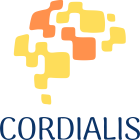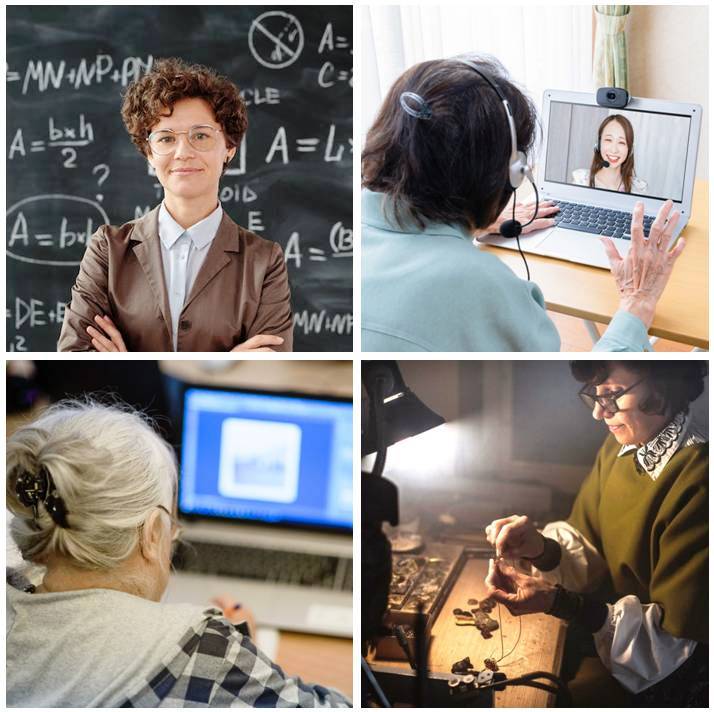
Target Groups
Target Groups
The project aims to propose practical solutions and tools to tackle the problems of motivation, interactivity and group management. For a large majority of citizens, online exchanges are a new form of communication and participation disruptions (such as disengagement) during online activities are numerous. By identifying these problems and by finding solutions, CORDIALIS aims to promote and foster the quality of online exchanges in the field of formal and informal education, cultural mediation, and online presentation of local heritage and crafts.
Let us present the target groups of the project.
- Artisans and traditional craftspeople. We expect that with the help of CORDIALIS project they will enhance their digital literacy and digital skills adapted to their marketing and professional needs. That they will gain innovative, digital ways of maintaining contact with their clients and present their work to new audience. Also, that they will develop self-assessment skills and autonomy in distance interaction to promote their craftwork and increase their social networking.
- Teachers and educators. We expect that with the help of CORDIALIS they will develop art-based and digital-based tools for foreing language teaching. Also, will apply new pedagogical skills to more successful computer interaction with learners. That they will find ways to motivate participants in a hybrid distance learning context (formal and informal) and find new ways to get honest feedback. Also, big part will be dedicated to group management, conflict management and group dynamics skills in distance education. Moreover, all together we will search for ways to evaluate their pedagogical practices in online situations.
- Professionals in the cultural sector – facilitators, media librarian, cultural stakeholders. We expect that with the help of CORDIALIS they will obtain new tools and guides to engage in on-line activities with a wider public. That they will find new resources to stimulate the cooperation with other professional in the cultural sector. Also, that they will adapt digital tools to enhance local cultural identity. And most importantly, that they will use cultural and digital resources to connect people from sparsely populated areas.
- Citizens and language learners living in remote areas. We expect that CORDIALIS project will help them to increase knowledge of how to share know-how and to maintain social networks. Also, that they will gain better understanding and respect for local and heritage cultural diversity within the EU. That this target group will improve competences in foreign language use in distance and hybrid environments and gain new ways of self-assessment and self-reflection to enhance life-long learning. We believe that they will get the opportunity to meet other people around cultural heritage projects. Most importantly we will seek that they could increase language, social and motivational skills in online activities, become accustomed to self-evaluation in distance interaction.

Connecting remote areas through digital competences and cultural heritage
Project Resources
30 months to
– develop manuals, pedagogical cards, audio and video podcasts, video tutorials and assessment grids.
– organize local – regional – international workshops and events
– meet citizens from remoted areas, language learners and teachers, craftsmen, librarians, local cultural stakeholders, etc.

CORDIALIS Erasmus+ Project
2021-1-FR01-KA220-ADU-000033544
cordialis.project @gmail.com
The European Commission support for the production of this publication does not constitute an endorsement of the contents which reflects the views only of the authors, and the Commission cannot be held responsible for any use which may be made of the information contained therein.
